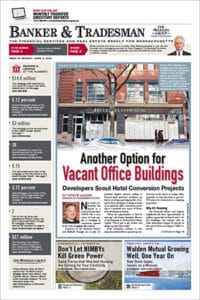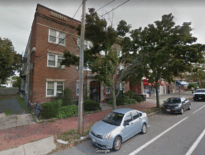Gov. Charlie Baker was preaching to the choir last week when he implored Greater Boston’s business leaders to support his Housing Choice bill. But that doesn’t mean these same executives would be if they got on the phone with their select board members, city councilors and neighbors.
In his annual address to the Greater Boston Chamber of Commerce, he warned that doing nothing about the housing crisis “will have a profound impact” on Massachusetts businesses’ ability to attract and retain talent as workers are forced to live further and further away from their jobs.
It’s a reality business knows all too well. Big companies pay top dollar to be located on a subway line. Renters and homebuyers who can afford it are willing to pay through the nose in order to be walking distance from a stop, whether in new construction like New England Development’s Allston Yards or in a triple-decker in Somerville. All told, the state’s housing crisis has pushed the statewide median sale price past $400,000 last year according to data from The Warren Group, publisher of Banker & Tradesman.
So far, the only solution housing stakeholders can agree to is a limited one, to lower the threshold for housing-related zoning changes to pass local planning and select boards from the current two-thirds majority to a simple majority.
It won’t directly force Boston’s suburbs to upzone areas near transit, for example, but it will make it easier for pro-housing majorities to defeat NIMBY minorities who are able to shut down many projects and zoning changes.
Leaders from a range of industries have come out in support of Baker’s bill, including the Greater Boston Chamber, itself.
While supportive statements to the media are very helpful in passing this very basic reform, the people who were in the room listening to Baker would also do well to think and act locally.
Many of them live in tony suburbs where opposition to both the bill and development is strongest. Officials in Needham – median single-family home sale price, $1.07 million – are helping hold up the bill’s passage by asking for a carve-out. Any town that’s met its Chapter 40B affordable housing obligations should get to live under the old, two-thirds rule.
As we’ve detailed in this space before, the idea is not only based on a faulty premise – Baker’s bill is not an affordable housing bill – and anti-democratic, it would also gut the bill’s impact, with nearly 40 percent of the 100 communities closest to Boston already in compliance with Chapter 40B.
Business leaders should be regularly meeting with their select board members, city councilors, town managers and mayors to lobby in favor of this bill. They should come armed with the well-publicized facts of the crisis, but also their personal stories of how the issue is hurting or could hurt their operations.
If these local officials can be turned to support the bill, or at least have their fears allayed, it will dramatically reduce the rationale for opposition on Beacon Hill.





